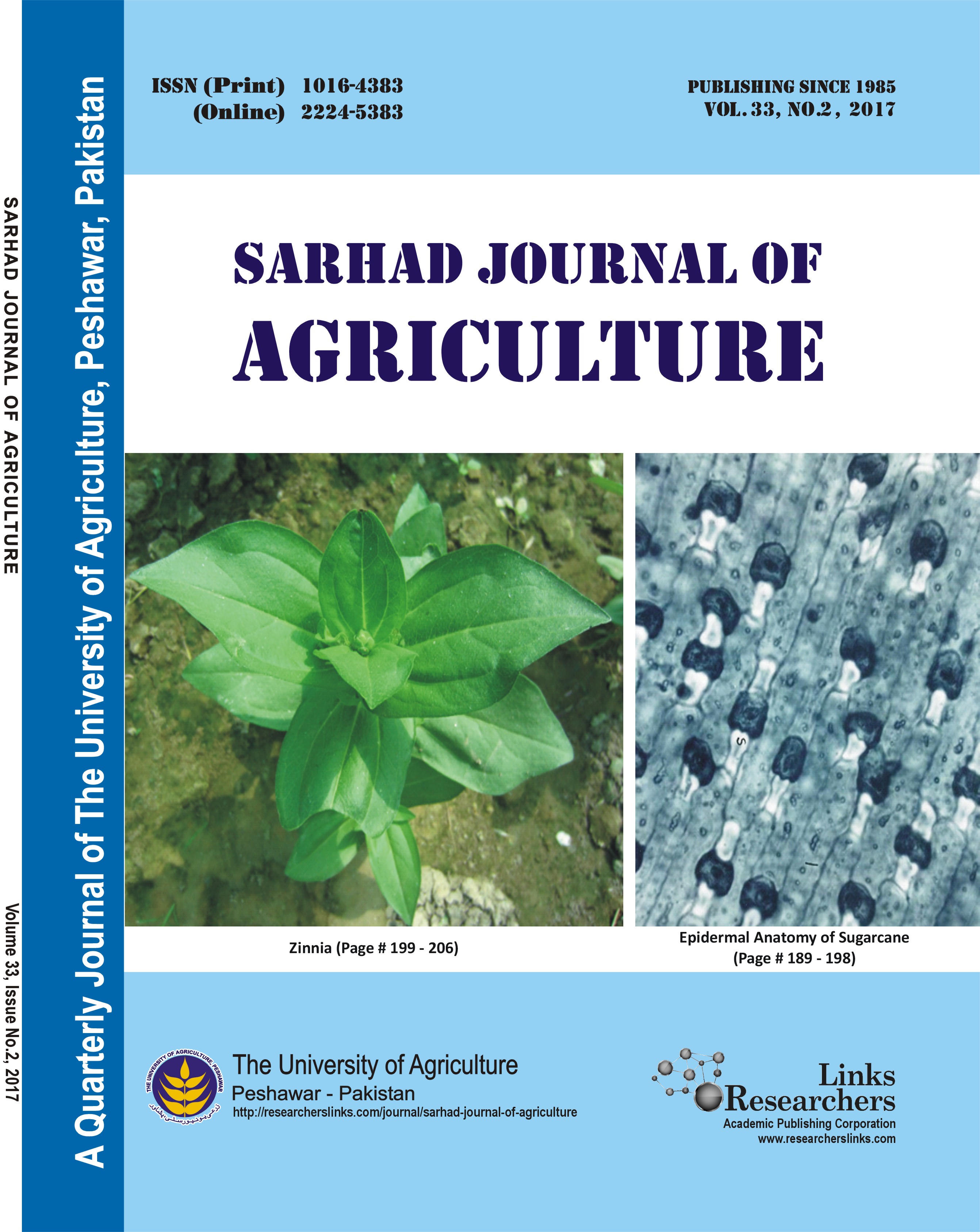Factors Affecting the Awareness and Adoption Level of Improved Olive Cultivation Practices by the Olive Growers in Pothwar Region of the Punjab, Pakistan
Factors Affecting the Awareness and Adoption Level of Improved Olive Cultivation Practices by the Olive Growers in Pothwar Region of the Punjab, Pakistan
Hassan Raza1, Muhammad Kashif Afzal2, Muhammad Luqman1*, Tahir Munir Butt3, Muhammad Yaseen1 and Muhammad Umer Mehmood1
ABSTRACT
The Government of Pakistan started focusing on the cultivation of olive trees to meet the rising demand for edible oil, save foreign exchange, and improve the farming community’s livelihoods. It is a matter of fact that training plays an important role in building the farmer’s capacities, raising awareness, and providing them with modern knowledge by enhancing their performance to achieve the ultimate goals. However, farmers struggle to manage the olive crop due to a lack of practical knowledge and training sessions on advanced production techniques. Keeping in view the above-mentioned facts, it was imminent to assess the awareness level and adoption of olive growers of the Pothwar region of Punjab so that they can contribute effectively to the uplift of agriculture as well as their livelihoods. Pothwar region comprises Attock, Chakwal, Jhelum, and Rawalpindi districts. Three districts (Chakwal, Jhelum, and Attock) were purposively selected due to the maximum number of olive growers. The olive growers’ list with a minimum of 50 plants was collected from the Department of Agriculture (Extension). A total sample size of 310 farmers was selected through a purposive sampling procedure by using Morgan and Krejcie table as the total population (Olive growers in the targeted research areas) is 1500. Data were collected through a face to face interviews with the help of an interview schedule. The SPSS (Statistical Package for Social Sciences) and MS. Office software were considered for analysis. According to the results, about 51% of the respondents in the study belonged to old age (above 45) and about 53.2% of the respondents were having matric education. Furthermore, results from correlation analysis showed that education, the number of olive trees and motivation to grow olive trees have a highly positive significant relationship with the level of awareness about olive cultivation practices. The systematic promotion of fortnightly and monthly training of olive growers without any discrepancy should be planned under realistic monitoring and evaluation. Agricultural extension department should arrange the training for different progressive farmers’ fields to develop an interest in updating their knowledge and analyzing their problems that will bring positive outcomes in olive production of Pakistan.
To share on other social networks, click on any share button. What are these?







